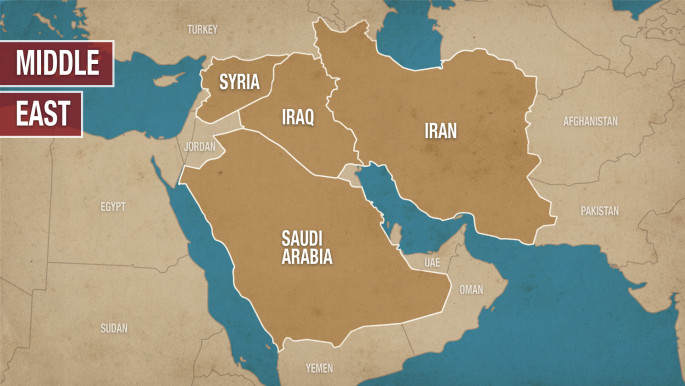Iraqis from various political, confessional and social groups say they welcome the apparent course change. In part, their enthusiasm stems from necessity. The new relationship comes amid a rare international consensus that the calm in Iraq must be consolidated, lest the country regress into violent conflict.
The Islamic State (IS) has been purged from most Iraqi territory, national pride is swelling and investor confidence is up.
Yet if the government and its partners cannot produce a tangible peace dividend, secure liberated areas, and end a cycle of sectarian and ethnic retribution, those gains could easily be reversed. Western partners have already started walking back their financial commitments, hoping their Gulf allies will fill the gap.
|
 |
The Islamic State (IS) has been purged from most Iraqi territory, national pride is swelling and investor confidence is up |
 |
|
Saudi Arabia's renewed engagement with Iraq has advantages compared to its actions elsewhere in the region.
Iraq provides an opportunity for Saudi officials to apply lessons learned from less successful interventions in Syria and Yemen. In Iraq, Saudi Arabia can play to its strengths, building political support and influence through economic incentives, while avoiding direct or proxy military action.
Read more: Sadr's Iraq: A vote against sectarianism and corruption
Saudi political and economic re-entry can capitalise on and reinforce domestic trends in Iraq, namely growing anti-Iran sentiment and an appetite for balanced regional relations.
Counter-intuitively, the fact that Riyadh is starting from a low base could be a blessing in disguise. Both sides must do the hard work of rebuilding trust, creating a network of contacts and courting public opinion. The kingdom's financial might gives it leverage, but not enough to have things its way. Riyadh will need strategic patience in order to build the influence it seeks.
Riyadh can contribute to Iraq's stabilisation, but the relationship will have to navigate a minefield of obstacles.
The first is the most fundamental: Saudi Arabia's renewed interest in engaging with Iraq overtly derives from a desire to counter Iranian influence.
|
 |
Riyadh will need strategic patience in order to build the influence it seeks |
 |
|
Yet Iraqis want and need to prevent their country from becoming yet another theatre for Saudi-Iranian hostilities.
Calibrating the speed of engagement also will be a challenge. Iraqis want to see immediate, tangible gains from Saudi Arabia's return. But if Riyadh tries to do too much, too soon, it could become mired in bureaucracy and corruption, or even provoke an Iranian reaction.
Both Saudi Arabia and Iraq will need to break old habits, such as working exclusively via political patronage and allowing inflammatory sectarian rhetoric from clerics and media commentators.
|
 |
|
|
If the risks of engagement are great, the folly of not engaging would be greater still.
As Saudi policymakers readily admit, leaving post-2003 Iraq without strong Arab partners kept the country dependent on Iranian security assistance, energy support, trade and political funding, and made its security institutions vulnerable to Iranian penetration. Such lopsided influence helped marginalize Sunni Arabs and set the stage for IS' rise.
Seeking to undo the damage, Saudi Arabia can now help strengthen the Iraqi state so that Baghdad can play the role to which many Iraqis say it aspires: A bridge between warring neighbours, rather than a battleground. The following steps could help:
-
Saudi Arabia should prioritise economic engagement with Iraq, producing immediate, tangible gains and fostering long-term projects. Efforts should focus on reconstruction, job creation and trade, with an eye toward balancing investment across the country.
-
Riyadh should consider steps toward publicly recognising Shia religious practice as a school of Islam, including by: moving to accept the legitimacy of Shia theology and jurisprudence, quieting anti-Shia rhetoric from Saudi Arabia-based clerics, issuing statements and undertaking actions dignifying Shia rituals, curbing persistent discrimination against the Shias in the kingdom, promoting broader religious tolerance within Saudi Arabia and encouraging its Sunni clerical establishment to engage informally with Shia clerics in Najaf.
-
The Iraqi government should prioritise reconstruction and reconciliation among Iraqi parties and communities by passing legislation and regulations that will facilitate donor and investor interest, stepping up anti-corruption efforts, ensuring equal services and aid across the country, and promoting a non-sectarian and non-ethnic ethos among its security forces.
-
Iran should encourage and support the calibrated integration of autonomous security actors into Iraq's national security institutions. Saudi Arabia and Gulf allies should understand that this process will necessarily be arduous, and must proceed delicately if it is to succeed. Tehran should encourage Iraq's efforts to diversify its regional alliances.
-
Riyadh and Tehran should look for common ground to gradually build a base of cooperation, or at a minimum coexistence, in Iraq. This effort could include promoting shared interests such as a stronger Iraqi economy, the country's territorial integrity, security sector reform and mitigation of the destabilising effects of climate change in the region.
Excerpt republished, with permission, from a new report by the International Crisis Group.
This article was originally published by our friends at Lobelog.
Opinions expressed in this article remain those of the author and do not necessarily represent those of The New Arab, its editorial board or staff.

![Sadr [Getty] Sadr [Getty]](/sites/default/files/styles/large_16_9/public/media/images/8AA614A0-B5D6-46F6-9A54-05D7A4D39E91.jpg?h=d1cb525d&itok=HXNPcs8u)







 Follow the Middle East's top stories in English at The New Arab on Google News
Follow the Middle East's top stories in English at The New Arab on Google News


